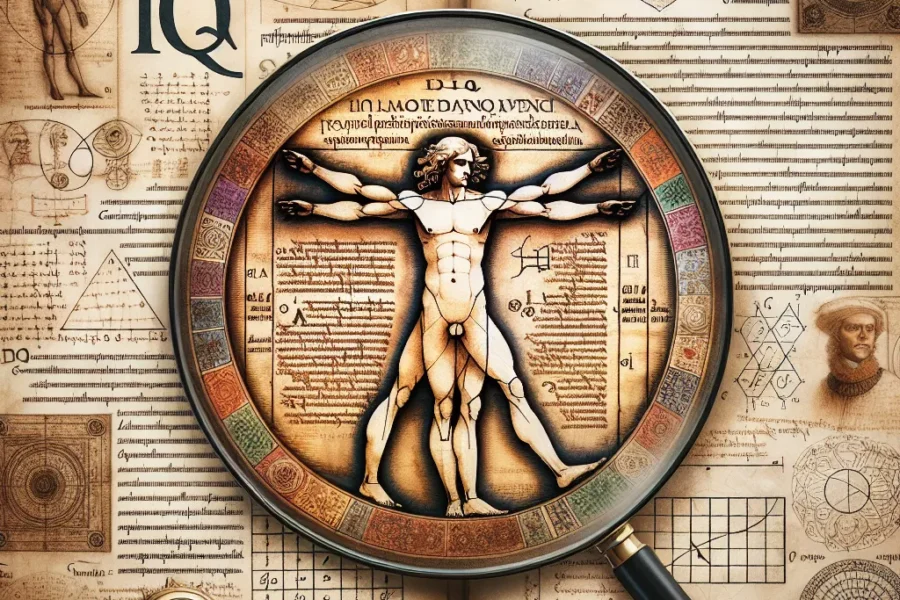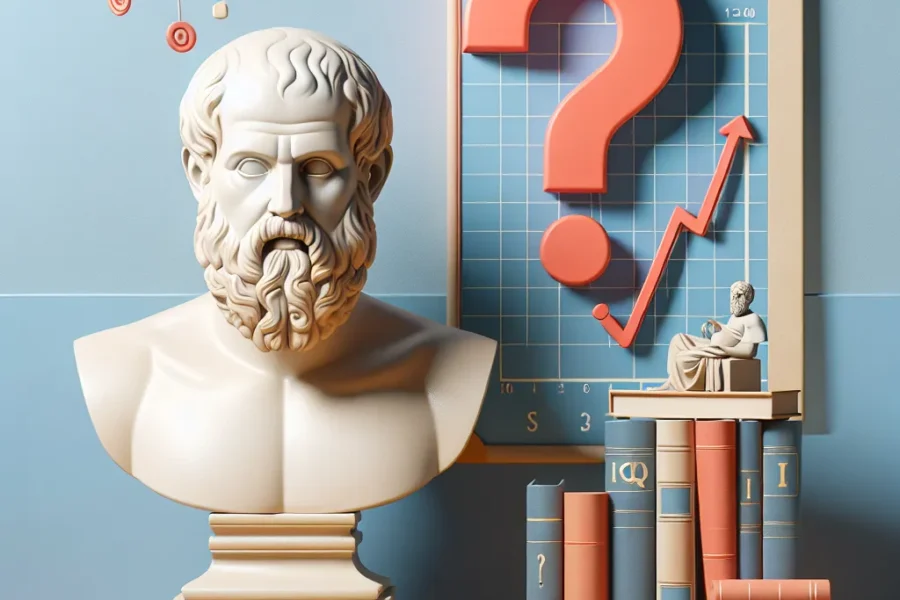When we talk about historical figures who have molded the bedrock of modern science, Sir Isaac Newton stands as a monumental figure. He is celebrated for his awe-inspiring contributions to physics, mathematics, astronomy, and even philosophy. However, the question arises: what was Isaac Newton’s IQ score? We often try to quantify human abilities and intellect with numerical values, and it is tempting to do the same for scientific giants like Newton. This article delves into this intriguing question, examining the complexities surrounding the measurement and interpretation of intelligence, particularly in historical contexts.
If you are looking for legitimate IQ Tests which pass the entry bar for Mensa, see our IQ Tests.
First and foremost, let’s clarify what IQ (Intelligence Quotient) really means. It is a score derived from standardized tests designed to measure human intelligence. These tests aim to assess various cognitive abilities, including problem-solving skills, logical reasoning, mathematical proficiency, linguistic capabilities, and spatial awareness. The average IQ score is generally set at 100, with scores above 140 often considered to indicate “genius” level intellect. Given Newton’s monumental contributions, it is tempting to assume he would score far above this threshold.
Newton was born in 1643 in Woolsthorpe, England, a period when the concept of IQ testing was non-existent. The first modern intelligence test, created by Alfred Binet and Théodore Simon, wouldn’t emerge until the early 20th century. Therefore, any attempt to assign an IQ score to Newton is speculative, relying on retrospective analysis of his works and intellectual capacity.
Isaac Newton is best known for his groundbreaking work in physics, encapsulated in his publication “Philosophiæ Naturalis Principia Mathematica,” commonly shortened to “Principia.” This seminal work laid the foundations for classical mechanics, introducing laws of motion and universal gravitation. Beyond physics, he made substantial contributions to optics and mathematics, particularly the development of calculus, a mathematical framework independently discovered by him and Gottfried Wilhelm Leibniz. Newton’s achievements in these fields alone suggest he possessed extraordinary intellectual capabilities.
When assessing Newton’s intellectual prowess, one must consider his innovative approach to scientific inquiry. During Newton’s time, the scientific method was still in its nascent stages. Newton adopted a methodical, empirical approach to understanding natural phenomena, distinguishing his work from predecessors who relied more on speculative philosophy. His rigorous experimentation and mathematical formulation of theories demonstrated an exceptional ability to synthesize observation and abstract reasoning, hallmarks of high intelligence.
Psychologists and historians have attempted to retroactively estimate historical figures’ IQs based on their contributions and observed cognitive abilities. Newton is often listed as having an estimated IQ between 190 to 200. These figures are based on the extraordinary impact and sophistication of his work, rather than any formalized test. If these estimates are to be believed, Newton’s IQ would place him in the extreme upper echelons of human intelligence, indicative of his profound genius.
It is crucial to remember the historical and cultural context in which Newton lived. The 17th century was a period of significant intellectual upheaval and transformation. The Scientific Revolution was in full swing, challenging centuries-old Aristotelian and medieval Scholastic paradigms. Newton was operating in an era when the boundaries of human understanding were expanding rapidly. His intellectual environment was abundant with new ideas, yet rife with considerable scientific conservatism and resistance. Navigating and excelling in such an environment required not only raw intellect but also a great deal of individual perseverance, creativity, and audacity.
One should also consider Newton’s personality traits and how they may have contributed to his intellectual achievements. Historical accounts describe Newton as intensely focused, meticulous, and relentless in his pursuit of knowledge. He was known to work long hours, often to the point of physical exhaustion, driven by an insatiable curiosity and desire to uncover the laws governing the natural world. Such traits, while not directly measured by modern IQ tests, undoubtedly played a crucial role in his scientific accomplishments.
In scrutinizing the question of Newton’s IQ, it is also informative to compare his intellectual context with that of contemporary scientific geniuses. For example, Albert Einstein, whose work revolutionized our understanding of space, time, and energy, is often estimated to have had an IQ around 160 to 190. Like Newton, Einstein exhibited extraordinary innovative thinking, coupled with profound mathematical and theoretical insights. While the precise numerics of IQ scores are debatable, the qualitative comparison among these intellectual giants highlights the exceptional nature of their contributions.
Besides numerical IQ estimates, Newton’s legacy is perhaps better assessed through the lens of his intellectual influence. His laws of motion and universal gravitation are cornerstones of physics, underpinning the vast majority of classical mechanics. His work in calculus laid the groundwork for advancements in numerous scientific and mathematical domains, influencing countless subsequent developments in these fields. Newton’s impact on science and human thought is incalculable, a testament to his remarkable intellectual faculties.
It’s also intriguing to consider how Newton’s intellect would be perceived in the modern world. With today’s advanced scientific tools, datasets, and computational methods, Newton’s approach might have evolved in fascinating ways. However, the essence of his genius—his ability to abstract complex natural phenomena into mathematical form and conduct meticulous experiments—would undeniably stand out in any era. Newton’s work required not just intellectual capacity but a breadth of knowledge spanning diverse scientific fields, an attribute that modern IQ tests may not fully encapsulate.
Ultimately, quantifying Isaac Newton’s intellect with a definitive IQ score is an impossible task fraught with assumptions and speculations. While estimated scores suggest he possessed extraordinary intelligence, it is the qualitative assessment of his work and its enduring impact that best captures his genius. Newton’s contributions transcended mere intellectual capability; they were marked by creativity, rigor, and a holistic understanding of the natural world. In celebrating Newton’s genius, we recognize not just an exceptionally high IQ but a mind that profoundly expanded the horizons of human knowledge.
If you’re fascinated by intellectual history and the exceptional minds that have shaped our world, understanding Isaac Newton’s contributions offers a glimpse into the heights of human intellect and the transformative power of scientific inquiry. It serves as a reminder that genius is not solely a matter of numbers but is also defined by the enduring legacy of one’s ideas and discoveries.
For those still intrigued by the world of IQ and intellectual assessments, explore our comprehensive and legitimate IQ Tests, which meet the standards for Mensa entry. These tests can offer insights into your own cognitive abilities and perhaps inspire you to embark on your own journey of intellectual discovery.
The enigma of Newton’s IQ serves as a fascinating intersection of history, psychology, and science—a testament to the enduring human quest to understand the nature of intelligence and genius.



Leave a Comment